Breaking Into AI Engineering: Skills, Salaries, and Demand in the US
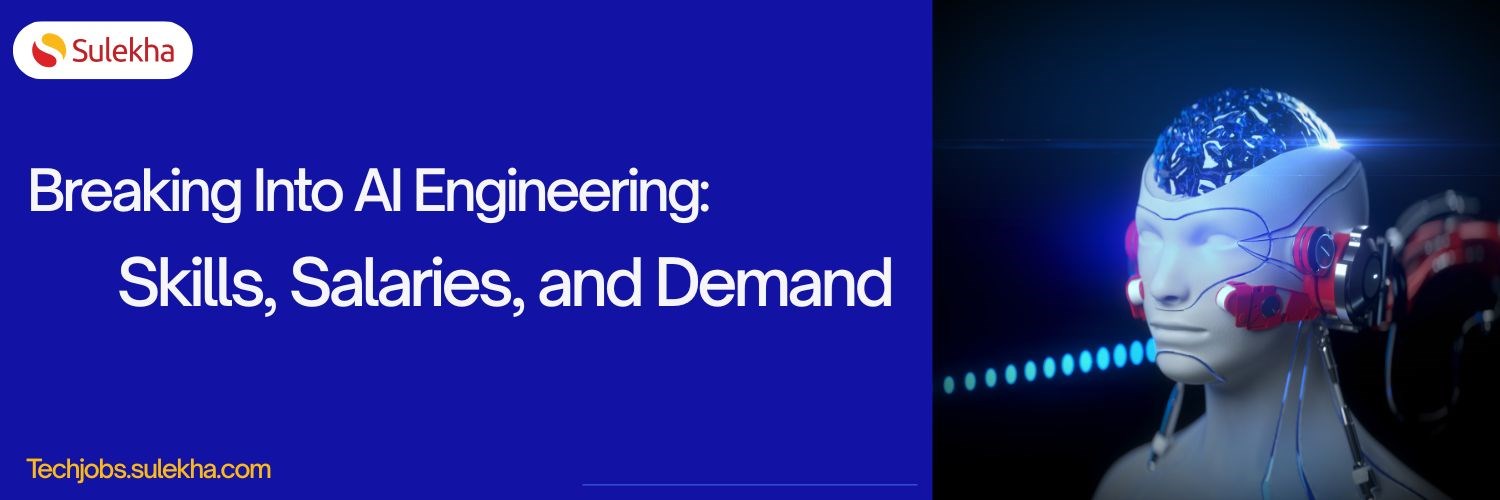
Breaking Into AI Engineering: Skills, Salaries, and Demand in the US
AI engineering is one of the most exciting and rapidly evolving fields in today’s tech industry. As Artificial Intelligence (AI) continues to reshape industries, the demand for skilled professionals who can develop AI technologies is increasing. If you are interested in breaking into AI engineering, it’s essential to understand the skills required, salary expectations, and the job market demand in the US.
This blog will cover everything you need to know about breaking into AI engineering, including the required skills, career opportunities, and salary insights.
AI Engineer Skills: Essential Expertise for Success
To become an effective AI engineer, you must master several core skills. These skills enable AI professionals to develop and deploy AI models, solve complex problems, and contribute to cutting-edge technology. Here’s a breakdown of the AI engineer skills:
1. Programming Languages: AI engineers should be proficient in programming languages like Python, Java, R, and C++. Python is the most popular language for machine learning (ML) and AI development because of its extensive libraries, such as TensorFlow and Keras.
2. Mathematics & Statistics: A strong foundation in mathematics is essential for AI engineers. Skills in linear algebra, calculus, and statistics are crucial for developing algorithms and analyzing data effectively.
3. Machine Learning & Deep Learning: AI engineers need to have a deep understanding of machine learning algorithms and deep learning methods. These are used for training systems to recognize patterns and make intelligent predictions.
4. Data Analysis & Preprocessing: AI engineers spend a significant amount of time preparing data. Being skilled in data preprocessing—cleaning, transforming, and structuring data—is necessary to build accurate AI models.
5. AI Tools & Frameworks: Familiarity with AI frameworks and tools like TensorFlow, PyTorch, and Google Cloud AI is essential. These tools simplify the process of building and deploying complex AI models.
6. Cloud Computing: Many AI models require extensive computational power. Knowledge of cloud computing platforms such as AWS and Google Cloud AI is beneficial for scaling and deploying AI solutions efficiently.
7. Problem-Solving & Critical Thinking: AI engineers need to be great problem-solvers, capable of thinking creatively and finding solutions to complex issues in AI system development.
AI Engineer Salary: What Can You Expect?
AI engineering is a highly lucrative career path, with competitive salaries based on experience, skills, and the complexity of the job. Here’s a look at the typical salary ranges for AI engineers in the US:
1. AI Engineer Salary in the US: On average, an AI engineer in the US earns approximately $115,000 annually. This can vary depending on experience, geographic location, and the specific company. According to Glassdoor, salaries in major tech hubs like Silicon Valley can be much higher.
2. AI Engineering Salary for Freshers: For entry-level AI engineers, AI engineer salaries for freshers typically range from $70,000 to $90,000 per year. Freshers with specialized skills in machine learning or deep learning may earn a bit more, especially if they have completed internships or hands-on projects. This is supported by data from Indeed.
3. Experienced AI Engineers: Senior AI engineers with specialized skills, such as expertise in deep learning, natural language processing (NLP), or computer vision, can earn upwards of $150,000 annually, with some positions offering salaries exceeding $200,000. According to Payscale, these high salaries are driven by increasing demand for advanced AI capabilities.
4. AI Security Engineer Salaries: AI security engineers, who specialize in safeguarding AI systems and ensuring the security of data, can expect salaries between $130,000 and $160,000 annually. These professionals are highly valued as AI systems become more integrated into sensitive industries like finance and healthcare. Industry reports emphasize the growing need for AI security experts due to rising cyber threats.
AI Engineer Demand: Why is It So High?
The demand for AI engineers is growing rapidly, and several factors are driving this trend:
1. AI Adoption Across Industries: AI is increasingly being adopted across various sectors, including healthcare, finance, retail, and manufacturing. From AI assistants like Siri and Alexa to AI-generated solutions in marketing and customer service, the need for skilled engineers to develop and manage AI technologies is expanding.
2. Data Explosion: With the exponential growth of data, businesses require AI engineers to create systems that can process, analyze, and draw insights from large datasets. As a result, data science and AI expertise are in high demand to help companies unlock the full potential of their data.
3. Automation and Efficiency: AI is the backbone of automation in many industries. From automating customer service to streamlining operations, AI engineers are essential for building the systems that drive efficiency and cost reduction. According to the World Economic Forum, AI is expected to significantly boost productivity in various sectors.
4. Technological Advancements: Advances in AI technologies, such as autonomous vehicles, predictive analytics, and personalized recommendations, are creating new opportunities for AI engineers to innovate and drive progress. The demand for AI engineers is growing as these technologies become more widespread.
AI Engineering Professional Certificate: How to Get Started
For those eager to break into AI engineering, obtaining an AI engineering professional certificate can be a valuable first step. These certificates typically cover a range of topics, including:
• Core AI concepts: Learn about the fundamentals of machine learning, deep learning, and neural networks.
• Hands-on projects: Gain practical experience by working on real-world AI projects and challenges.
• Industry tools and frameworks: Familiarize yourself with popular AI tools like TensorFlow, PyTorch, and Google Cloud AI.
Completing an AI certification can significantly enhance your resume and make you more attractive to potential employers. According to research by LinkedIn, professionals with certifications in AI are 60% more likely to be hired for AI-related roles.
AI Development Jobs: Career Opportunities in AI
AI engineering offers a wide range of career opportunities across different industries. Below are some of the most sought-after AI development jobs:
1. AI Engineer: These professionals focus on developing and deploying AI models, applying machine learning algorithms, and working with AI systems to solve real-world problems.
2. Machine Learning Engineer: ML engineers specialize in developing machine learning models, training systems to learn from data, and refining algorithms for optimal performance.
3. AI Data Scientist: AI data scientists use AI technologies to analyze large datasets, helping businesses derive meaningful insights that can drive decisions and innovation.
4. AI Security Engineer: AI security engineers focus on securing AI systems from vulnerabilities and cyber threats, ensuring the integrity and safety of AI applications.
5. AI Researcher: AI researchers work on advancing AI technologies, exploring new algorithms, and contributing to scientific advancements in the AI field. Industry surveys show that AI research is a rapidly growing field, with applications across multiple industries.
AI Engineering Courses: How to Gain Expertise
To break into the field of AI engineering, enrolling in an AI engineer course can provide you with the knowledge and skills necessary for success. These courses typically include:
• Fundamentals of AI: Understanding the core principles of artificial intelligence, machine learning, and data analysis.
• Hands-on experience: Developing and deploying AI models through practical projects.
• Capstone projects: Applying what you’ve learned to real-world challenges, helping you build a portfolio that can impress potential employers.
An AI engineer course will equip you with the expertise to begin a career in AI engineering, from entry-level roles to more advanced positions in AI research or development.
Conclusion: Why AI Engineering is a Smart Career Choice
AI engineering offers a fulfilling and financially rewarding career path. The demand for AI engineers continues to rise, as more industries look to adopt AI technologies for enhanced efficiency, productivity, and innovation. By mastering the required AI engineer skills through Sulekha, you will obtaining relevant sills and stay updated with the latest industry trends. This aid you successfully break into AI engineering and take advantage of the exciting opportunities in this growing field.
Whether you’re starting with an AI engineering course or aiming for a specialized role like AI security engineer, the possibilities in AI are limitless. Now is the perfect time to start building the skills and experience that will allow you to thrive in one of the most dynamic fields in technology.
Find a course provider to learn Artificial Intelligence Engineer
Java training | J2EE training | J2EE Jboss training | Apache JMeter trainingTake the next step towards your professional goals in Artificial Intelligence Engineer
Don't hesitate to talk with our course advisor right now
Receive a call
Contact NowMake a call
+1-732-338-7323Enroll for the next batch
Artificial Intelligence Engineer
- Dec 2 2025
- Online
Artificial Intelligence Engineer
- Dec 3 2025
- Online
Artificial Intelligence Engineer
- Dec 4 2025
- Online
Artificial Intelligence Engineer
- Dec 5 2025
- Online
Related blogs on Artificial Intelligence Engineer to learn more

Artificial Intelligence – A Growing Field of Study for Modern Learners
Artificial Intelligence is becoming a top study choice due to high job demand and future scope. This blog explains key subjects, career opportunities, and a simple AI study roadmap to help beginners start learning and build a strong career in the AI

Train Like an AI Engineer: The Smartest Career Move You’ll Make This Year!
Why AI Engineering Is the Hottest Skillset Right Now From self-driving cars to chatbots that sound eerily human, Artificial Intelligence is no longer science fiction — it’s the backbone of modern tech. And guess what? Companies across the USA and Can
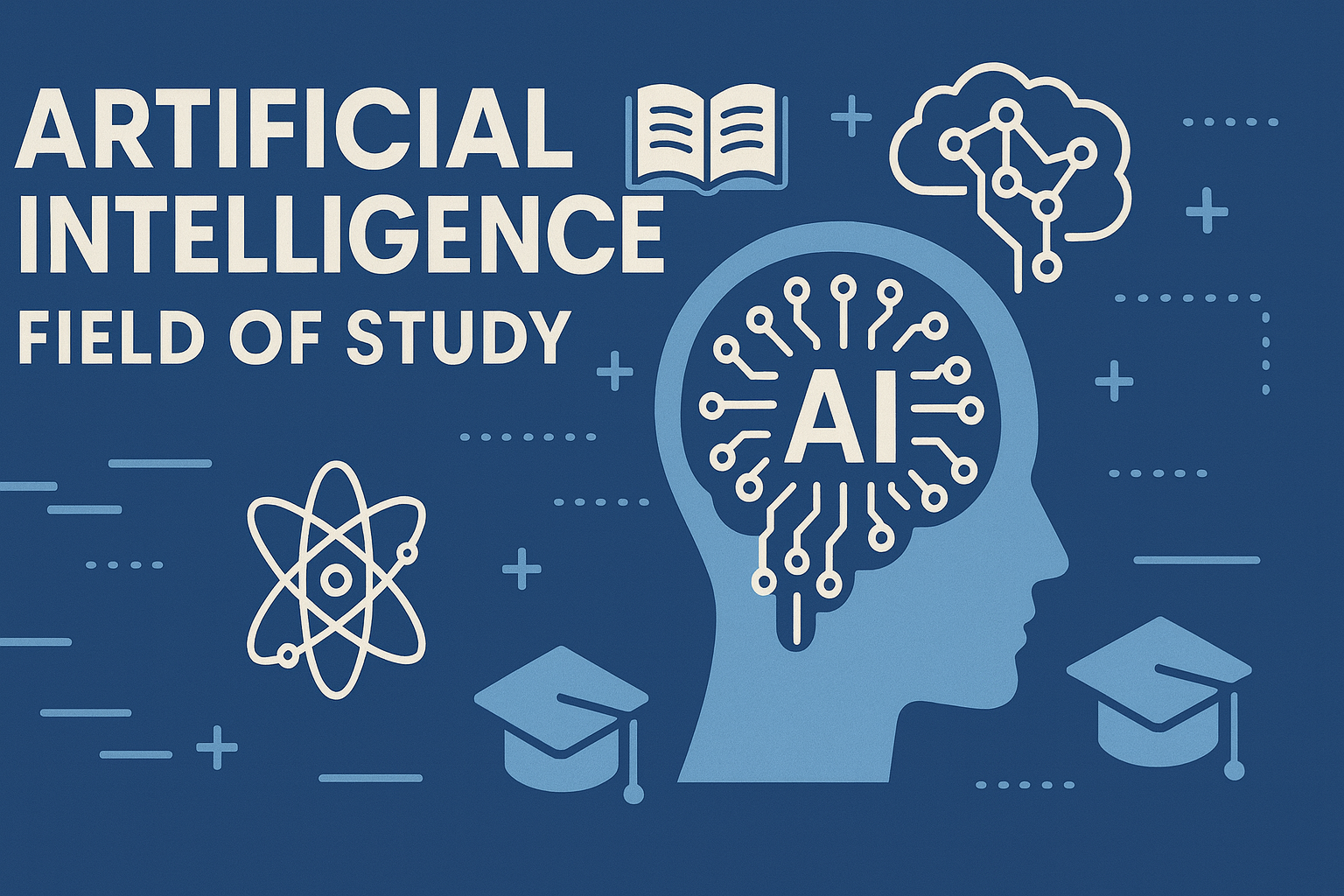
Artificial Intelligence – Field of Study
Explore how Artificial Intelligence blends Machine Learning, Deep Learning, NLP, and Computer Vision to build intelligent systems that learn, reason, and decide. Discover real world applications, ethics, and booming career scope as AI education deman
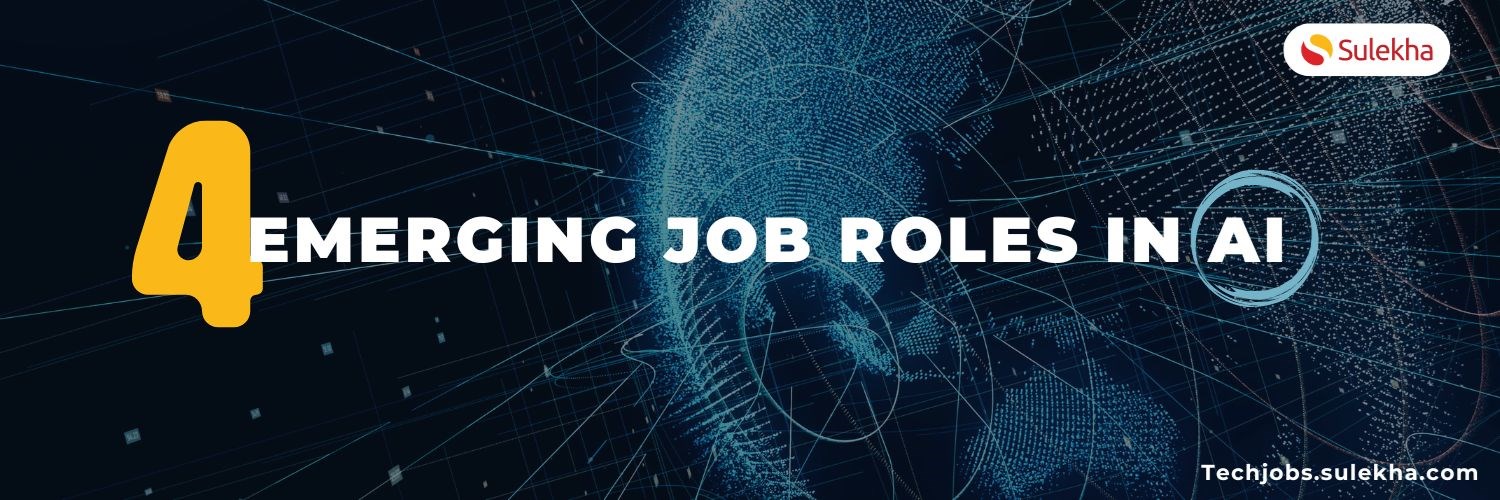
Top Four emerging job roles in AI
Explore four emerging AI job roles including AI ethicist, trainer, interaction designer, and safety engineer, each shaping the future of ethical and secure AI technology. Learn about their responsibilities and the essential skills required in this ev

Prompt Engineering
We have discussed comprehensive entitles of what is prompt engineering, types of prompts, element and method of prompt engineering, and application of prompt engineering in-detail.
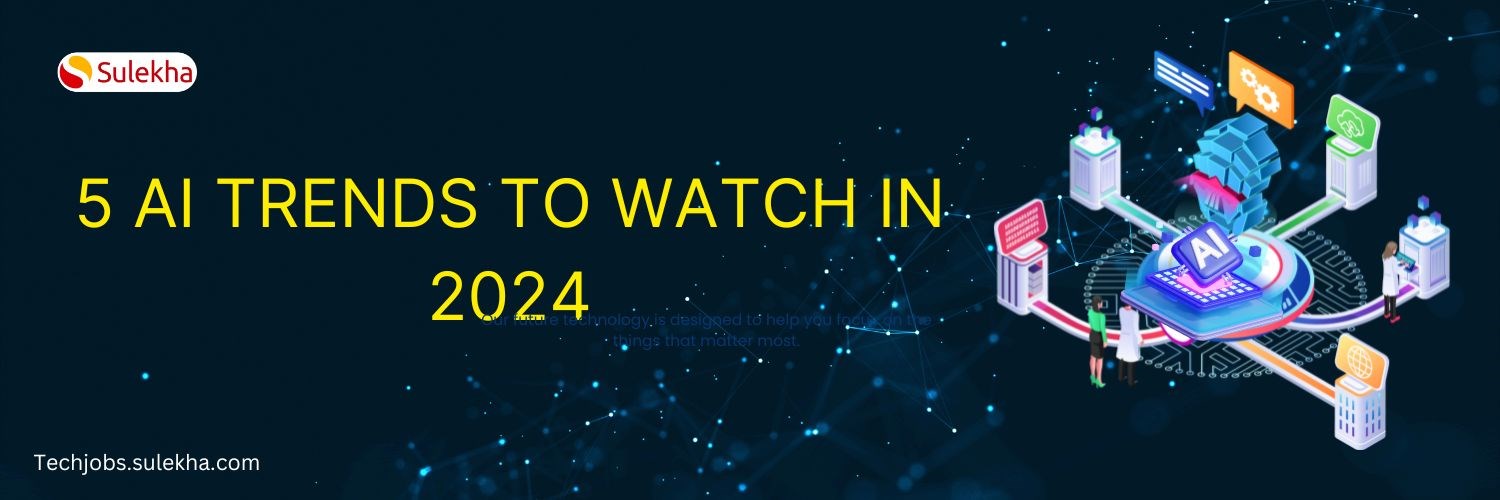
5 AI Trends to Watch in 2024
Discover the top 5 AI trends that will shape the future in 2024, from advancements in natural language processing to the growing impact of AI on healthcare and beyond.
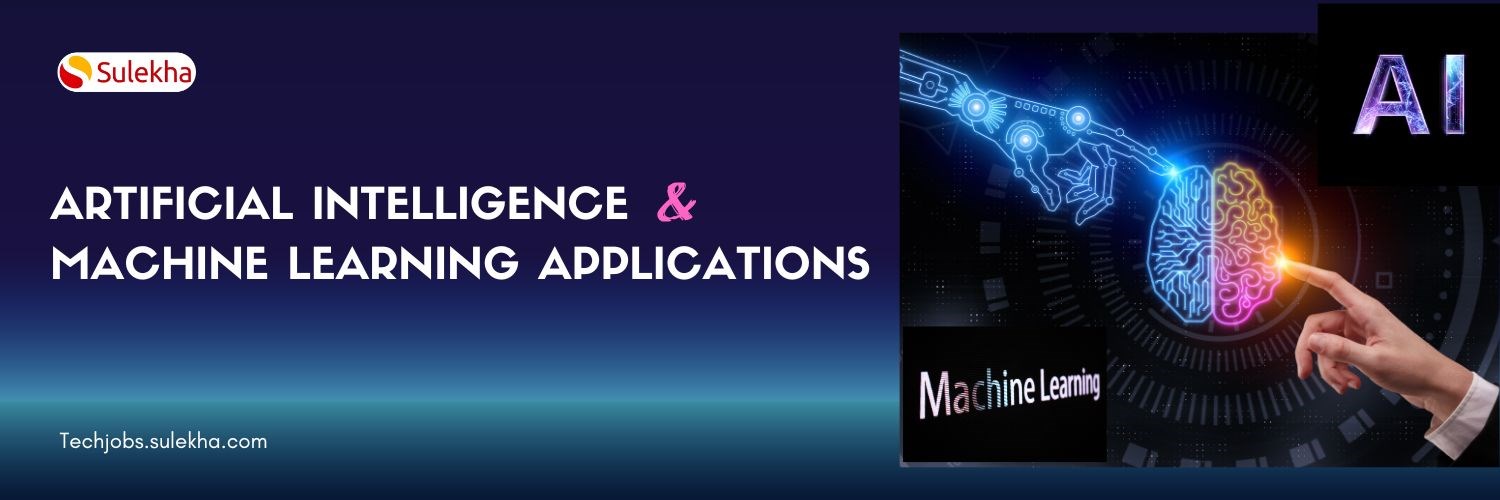
Artificial Intelligence and Machine Learning applications
Discover the vast applications of Artificial Intelligence (AI) and Machine Learning (ML) across various industries, from healthcare to finance, and learn how these technologies are transforming the way we live and work.
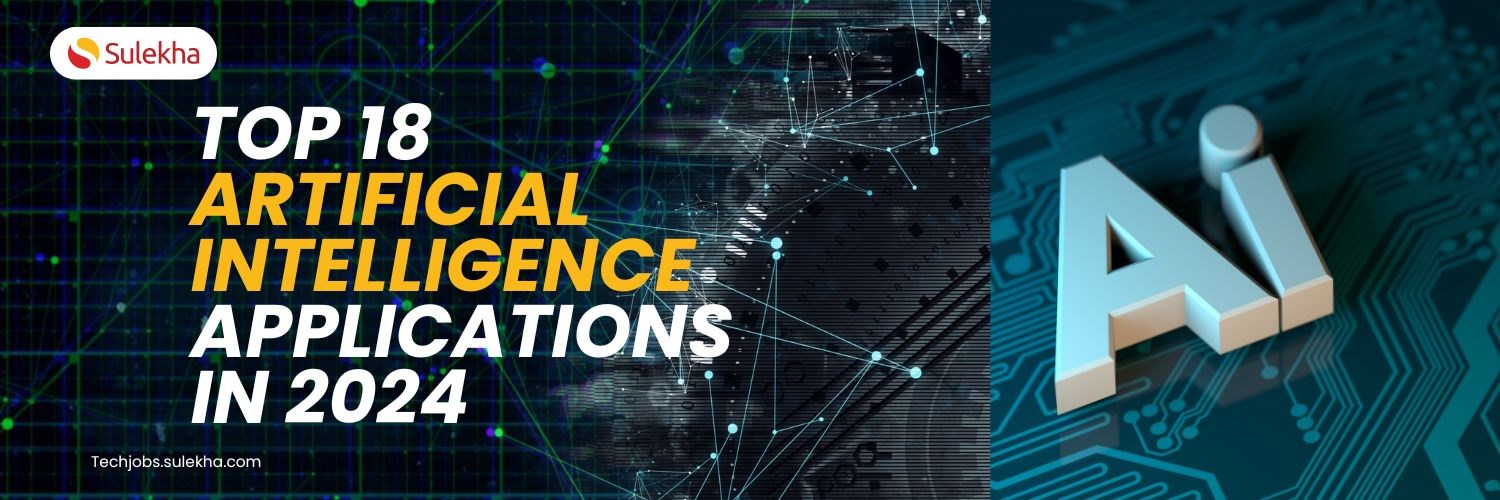
Top 18 Artificial Intelligence Applications in 2024
Explore the diverse applications of machine learning in various industries, including healthcare, finance, retail, and transportation.

What is Generative AI? Everything You Need to Know
Generative AI is not just a career path; it's a gateway to a future where innovation and creativity intersect. This blog uncovers why generative AI is not just a career but a pathway to shaping the future of work.

Devin AI - Friend or Foe of Software Developers
In a groundbreaking leap for artificial intelligence, US-based startup Cognition has unveiled Devin AI - an autonomous AI system capable of conceptualizing, designing, and coding software from scratch. This remarkable feat ushers in a new era, blurri
Latest blogs on technology to explore

Artificial Intelligence – A Growing Field of Study for Modern Learners
Artificial Intelligence is becoming a top study choice due to high job demand and future scope. This blog explains key subjects, career opportunities, and a simple AI study roadmap to help beginners start learning and build a strong career in the AI

Java in 2026: Why This ‘Old’ Language Is Still Your Golden Ticket to a Tech Career (And Where to Learn It!
Think Java is old news? Think again! 90% of Fortune 500 companies (yes, including Google, Amazon, and Netflix) run on Java (Oracle, 2025). From Android apps to banking systems, Java is the backbone of tech—and Sulekha IT Services is your fast track t
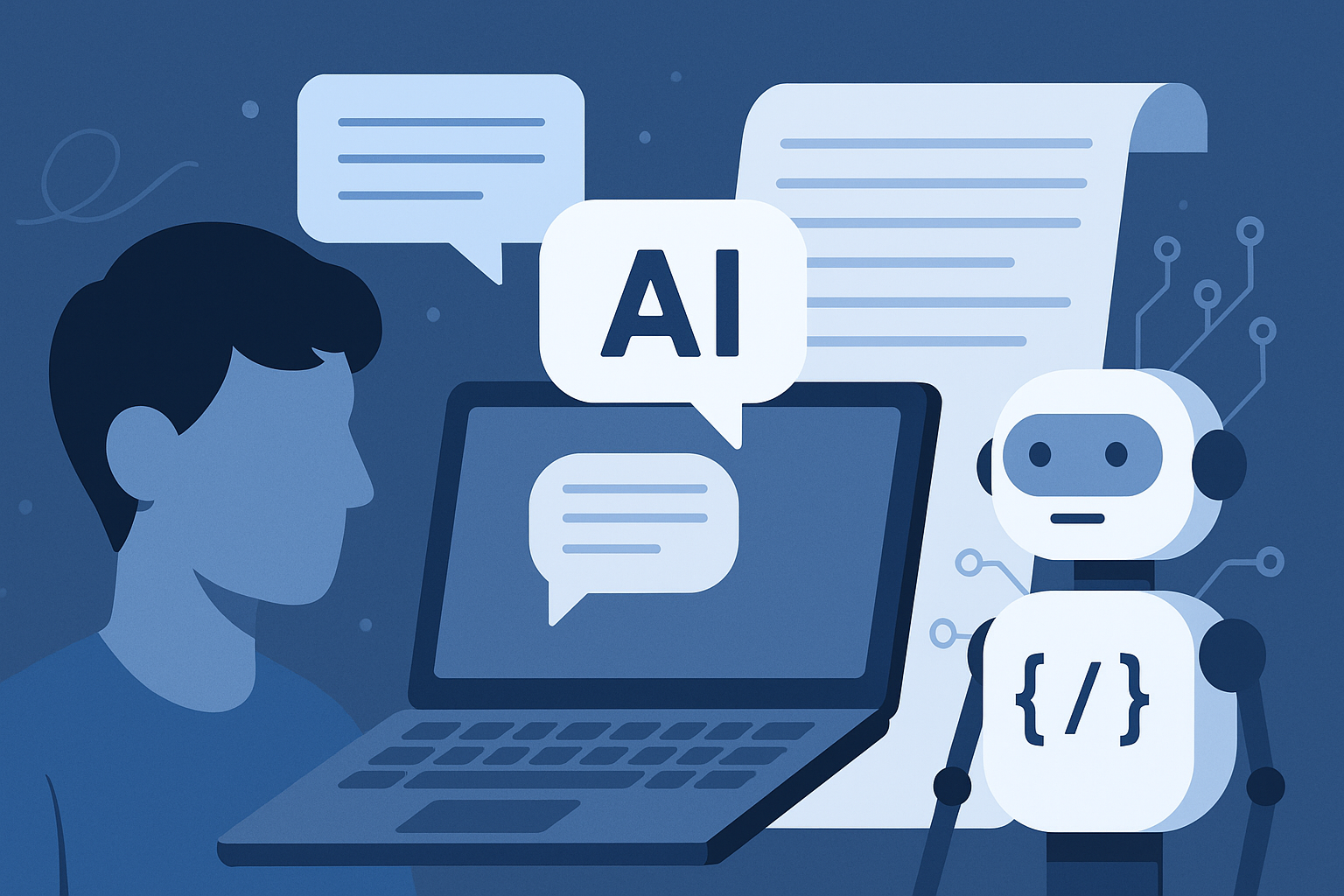
From Student to AI Pro: What Does Prompt Engineering Entail and How Do You Start?
Learn what prompt engineering is, why it matters, and how students and professionals can start mastering AI tools like ChatGPT, Gemini, and Copilot.

Cyber Security in 2025: The Golden Ticket to a Future-Proof Career
Cyber security jobs are growing 35% faster than any other tech field (U.S. Bureau of Labor Statistics, 2024)—and the average salary is $100,000+ per year! In a world where data breaches cost businesses $4.45 million on average (IBM, 2024), cyber secu

SAP SD in 2025: Your Ticket to a High-Flying IT Career
In the fast-paced world of IT and enterprise software, SAP SD (Sales and Distribution) is the secret sauce that keeps businesses running smoothly. Whether it’s managing customer orders, pricing, shipping, or billing, SAP SD is the backbone of sales o

SAP FICO in 2025: Salary, Jobs & How to Get Certified
AP FICO professionals earn $90,000–$130,000/year in the USA and Canada—and demand is skyrocketing! If you’re eyeing a future-proof IT career, SAP FICO (Financial Accounting & Controlling) is your golden ticket. But where do you start? Sulekha IT Serv

Train Like an AI Engineer: The Smartest Career Move You’ll Make This Year!
Why AI Engineering Is the Hottest Skillset Right Now From self-driving cars to chatbots that sound eerily human, Artificial Intelligence is no longer science fiction — it’s the backbone of modern tech. And guess what? Companies across the USA and Can
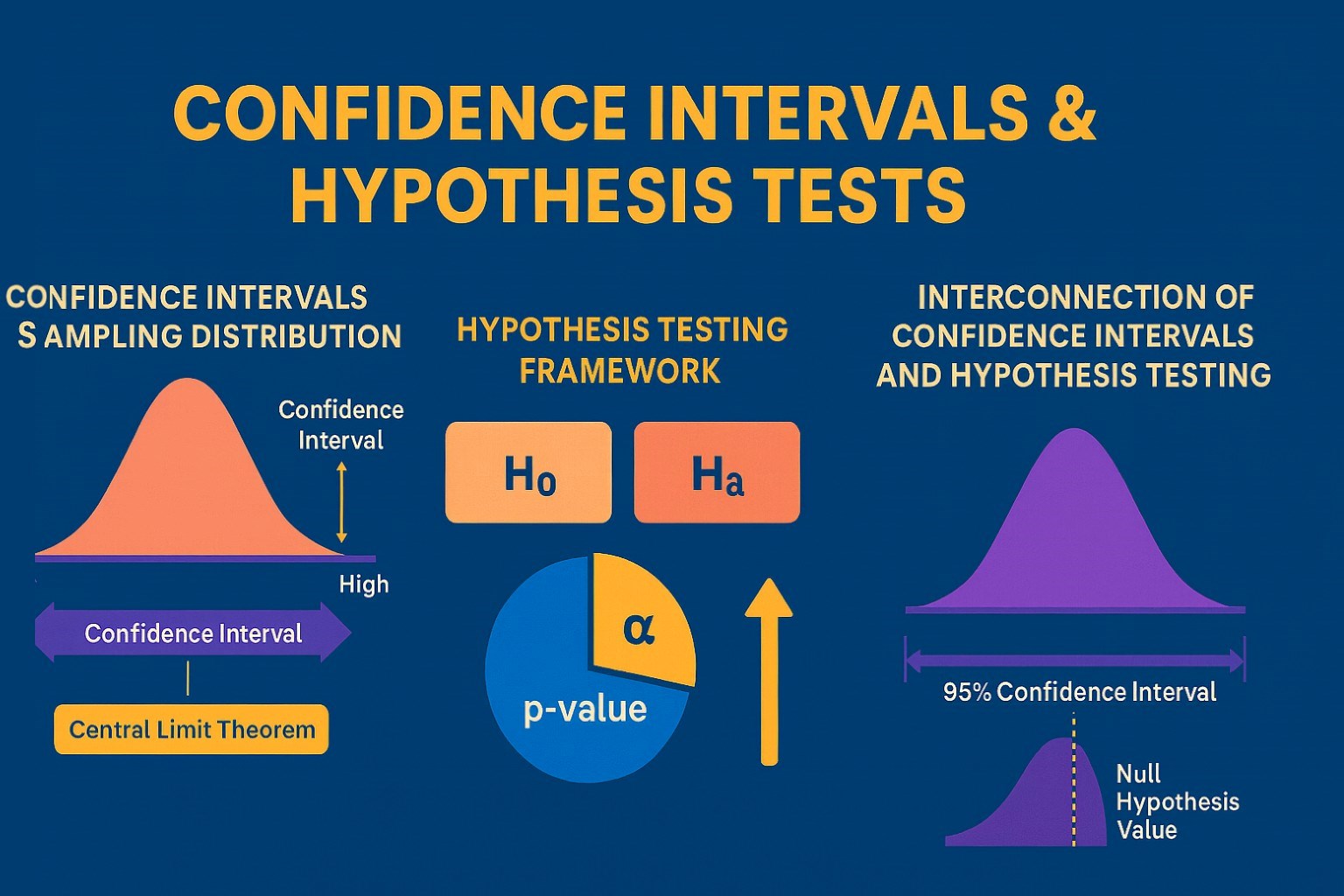
Confidence Intervals & Hypothesis Tests: The Data Science Path to Generalization
Learn how confidence intervals and hypothesis tests turn sample data into reliable population insights in data science. Understand CLT, p-values, and significance to generalize results, quantify uncertainty, and make evidence-based decisions.
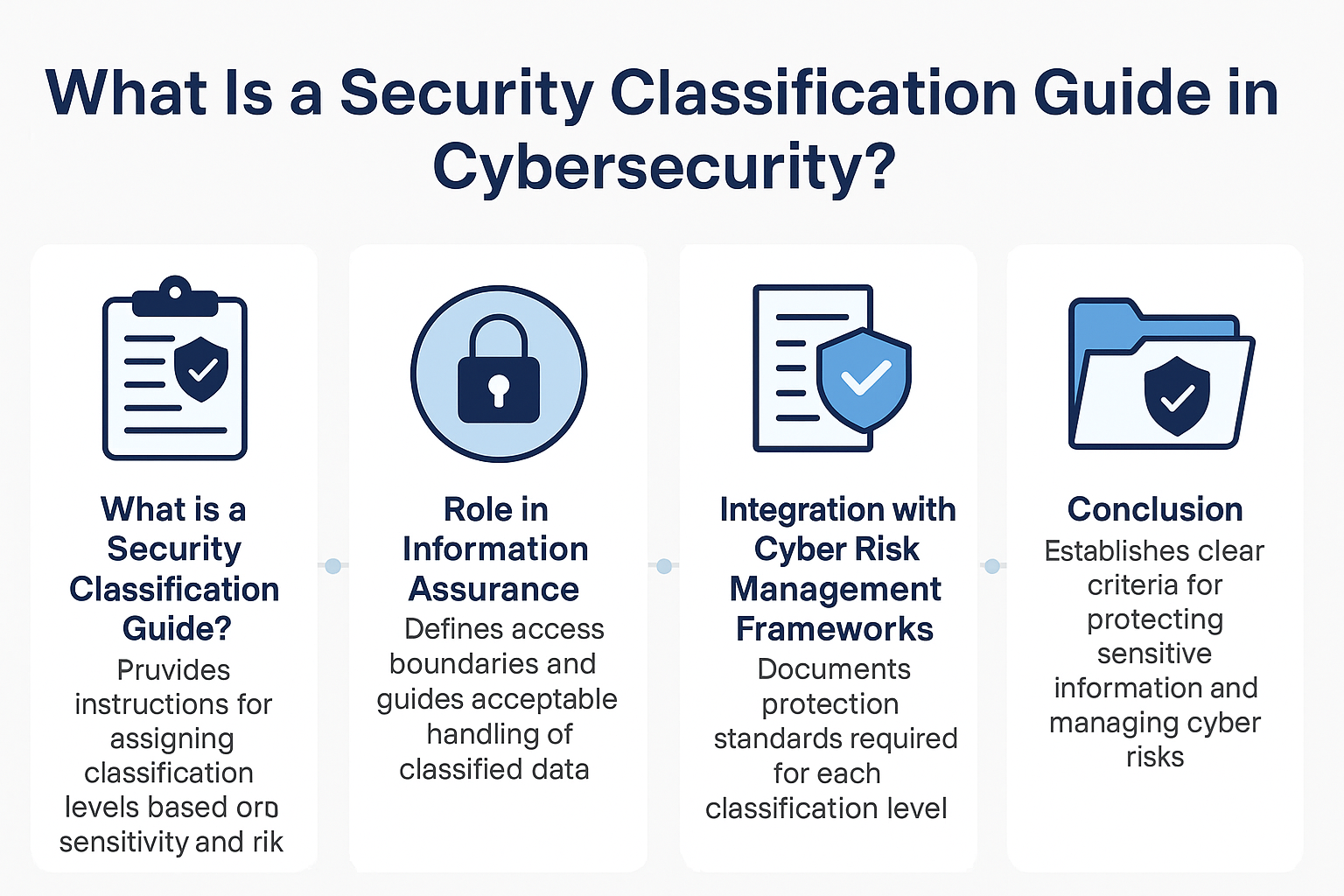
What Is a Security Classification Guide in Cybersecurity?
A Security Classification Guide (SCG) defines how to categorize information assets by sensitivity, with clear instructions from authorized officials to ensure consistent, compliant data handling.

Artificial Intelligence – Field of Study
Explore how Artificial Intelligence blends Machine Learning, Deep Learning, NLP, and Computer Vision to build intelligent systems that learn, reason, and decide. Discover real world applications, ethics, and booming career scope as AI education deman